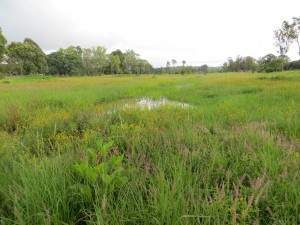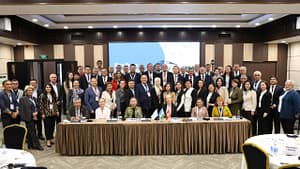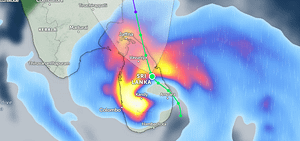Harare, capital of Zimbabwe, has a problem with water supply. Often unavailable, and grossly polluted, it costs millions of dollars a year to treat. Yet, Harare, nestled within a natural wetland has the gift of nature of easy access to plentiful and clean water – as long the source area is protected.
Walking on wetlands near the Central Business District two weeks ago was a reminder that the value of, and the threat to wetlands, is an everyday occurrence. Alas, city development puts increasing pressure on the remaining wetlands that circle the city and lie alongside an expanding suburbia.
 Because the wetlands are seasonal, and dry in the winter, some economic interests even dispute their definition as wetlands. But, the reality is that Harare’s water crisis is by and large a self-made one. Local organizations work hard to improve understanding that by working with the wetlands as part of nature’s natural capital, they can help the city provide its much needed sustainable water supply (see our feature here)
Because the wetlands are seasonal, and dry in the winter, some economic interests even dispute their definition as wetlands. But, the reality is that Harare’s water crisis is by and large a self-made one. Local organizations work hard to improve understanding that by working with the wetlands as part of nature’s natural capital, they can help the city provide its much needed sustainable water supply (see our feature here)
The bit-by-bit erosion of wetlands that serve Harare so well, is a common global story. The piecemeal fragmentation of wetlands is ongoing, a little here and a little there, driven by multiple pressures and insufficient understanding of how wetlands can be part of the solution to sustainable water supply, flood relief, mitigation to climate change, and a host of other services.
Despite all the jobs and other vital benefits that wetlands provide, 64% of the world’s wetlands have disappeared since 1900. The wetlands that still remain are often so degraded that the people who directly rely on wetlands for their living – often the very poor – are driven into even deeper poverty. In addition, by 2025, it is estimated that 35% of people will directly face declining water supplies. This is the result of a point of view that still mistakenly sees wetlands as wasteland.
Today, the World Wetlands Day 2016, celebrated “Wetlands for our Future: Sustainable Livelihoods”. As in previous years, partners organized events on the day to raise awareness for the importance of wetlands, some of which we will share here on the website and in the community to inspire future events.
After all, every day is a wetlands day for people depending on them for their livelihoods.



 IWMI’s Giriraj Amarnath spoke to Sami Zeidan Live on Al Jazeera News on December 4, 2025 about the climate and humanitarian impact of the widespread floods in Sri Lanka. Amarnath outlined the urgent need to strengthen key infrastructure as the country faces increasing risks from recurring extreme weather.
IWMI’s Giriraj Amarnath spoke to Sami Zeidan Live on Al Jazeera News on December 4, 2025 about the climate and humanitarian impact of the widespread floods in Sri Lanka. Amarnath outlined the urgent need to strengthen key infrastructure as the country faces increasing risks from recurring extreme weather. In an interview on the 2025 World Water Congress in Morocco, IWMI's Youssef Brouziyne and Alan Nicol highlight the importance of collaboration for sustainable water management.
In an interview on the 2025 World Water Congress in Morocco, IWMI's Youssef Brouziyne and Alan Nicol highlight the importance of collaboration for sustainable water management.  Experts from Kazakhstan, Kyrgyzstan, Tajikistan, Turkmenistan and Uzbekistan explore pathways for sustainable water management and climate resilience.
Experts from Kazakhstan, Kyrgyzstan, Tajikistan, Turkmenistan and Uzbekistan explore pathways for sustainable water management and climate resilience. IWMI is supporting national authorities with flooding forecasts, rainfall monitoring, data processing and impact assessments.
IWMI is supporting national authorities with flooding forecasts, rainfall monitoring, data processing and impact assessments. IWMI's Giriraj Amarnath talked to Lewis Vaughan Jones live on BBC News show The Context on November 28, 2025, about the situation in Sri Lanka after Cyclone Ditwah caused widespread floods. Amarnath explained how national disaster agencies are responding and IWMI is providing support with flood forecasting, near real-time rainfall monitoring, and data processing.
IWMI's Giriraj Amarnath talked to Lewis Vaughan Jones live on BBC News show The Context on November 28, 2025, about the situation in Sri Lanka after Cyclone Ditwah caused widespread floods. Amarnath explained how national disaster agencies are responding and IWMI is providing support with flood forecasting, near real-time rainfall monitoring, and data processing.